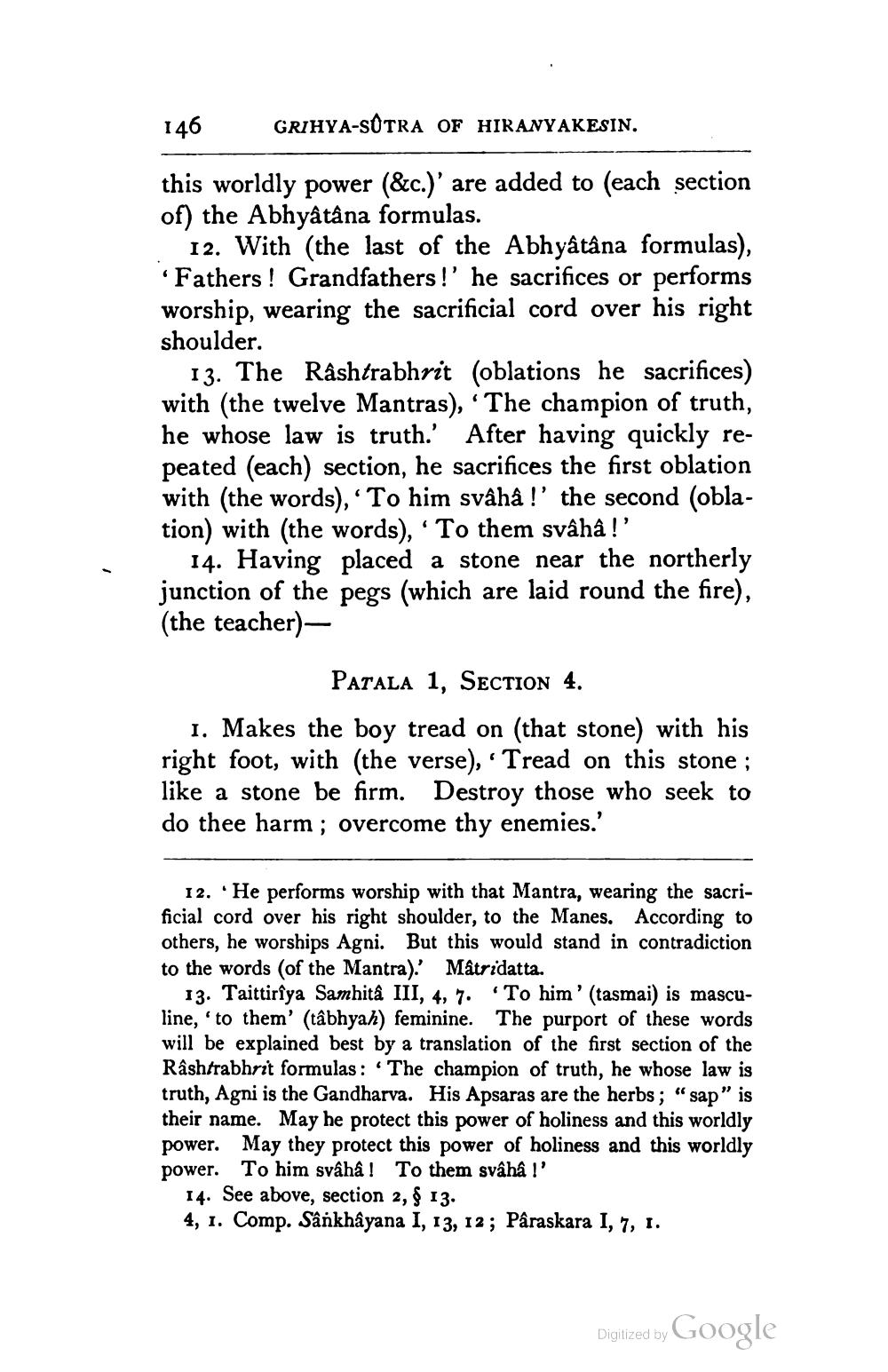________________
146
GRIHYA-SUTRA OF HIRANYAKESIN.
this worldly power (&c.)' are added to (each section of) the Abhyâtâna formulas.
12. With (the last of the Abhyâtâna formulas), 'Fathers! Grandfathers!' he sacrifices or performs worship, wearing the sacrificial cord over his right shoulder.
13. The Râshtrabhrit (oblations he sacrifices) with (the twelve Mantras), 'The champion of truth, he whose law is truth.' After having quickly repeated (each) section, he sacrifices the first oblation with (the words), 'To him svâhâ!' the second (oblation) with (the words), ' To them svâhâ!'
14. Having placed a stone near the northerly junction of the pegs (which are laid round the fire), (the teacher)
PATALA 1, SECTION 4.
1. Makes the boy tread on (that stone) with his right foot, with (the verse), 'Tread on this stone; like a stone be firm. Destroy those who seek to do thee harm; overcome thy enemies.'
12. He performs worship with that Mantra, wearing the sacrificial cord over his right shoulder, to the Manes. According to others, he worships Agni. But this would stand in contradiction to the words (of the Mantra).' Mâtridatta.
13. Taittirîya Samhitâ III, 4, 7. To him' (tasmai) is masculine, 'to them' (tâbhyah) feminine. The purport of these words will be explained best by a translation of the first section of the Râshtrabhrit formulas: The champion of truth, he whose law is truth, Agni is the Gandharva. His Apsaras are the herbs; "sap" is their name. May he protect this power of holiness and this worldly power. May they protect this power of holiness and this worldly power. To him svâhâ! To them svâhâ !'
14. See above, section 2, § 13.
4, 1. Comp. Sankhâyana I, 13, 12; Pâraskara I, 7, 1.
Digitized by
Google




